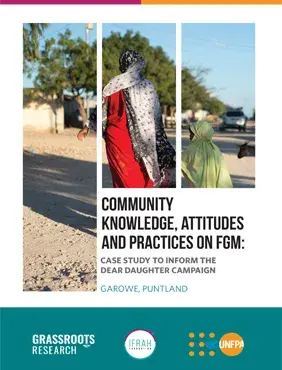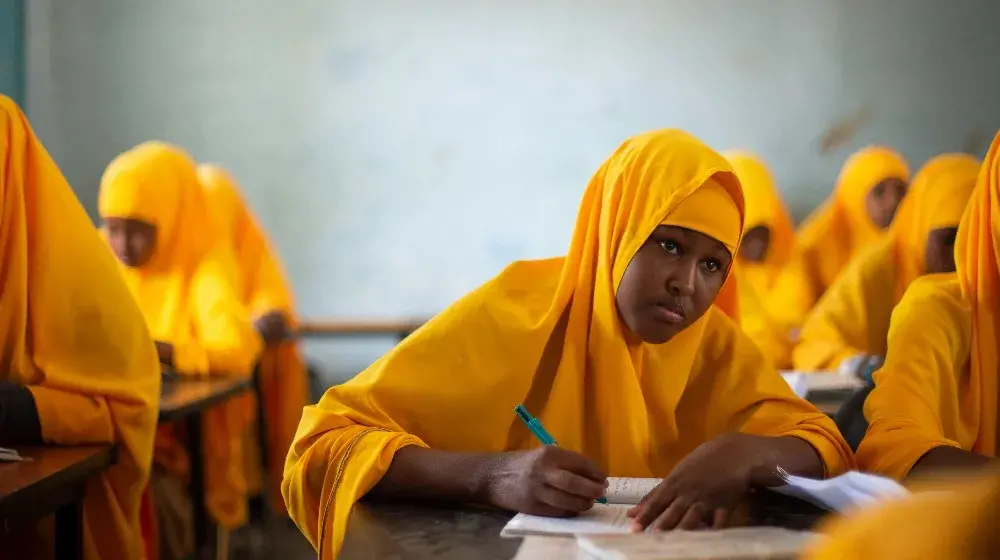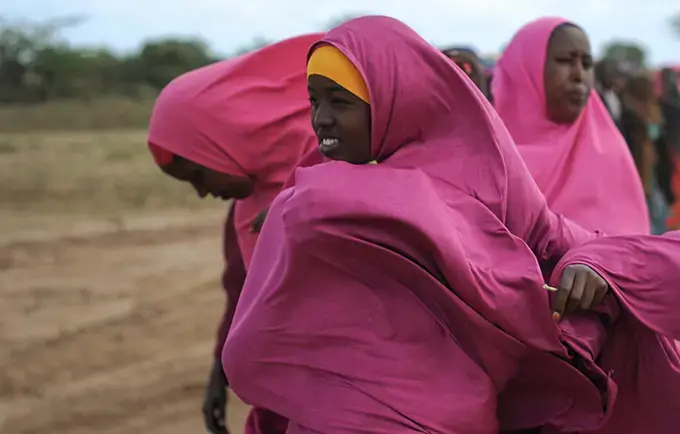Female Genital Mutilation (FGM) is a procedure in which the external genitalia of girls and women are partially or completely removed and/or infibulated without medical reasons. The procedure causes lifelong physical, psychological, and reproductive health problems for the woman. Heavy bleeding and problems with urination and menstruation, as well as infections, fistulas, and complications of labor and delivery are possible risks. In spite of the health complications, practicing communities and especially women perpetuate the practice as a social norm and religious duty. The circumcised girl, her mother, and the family benefit socially since an underlying belief exists that FGM ensures premarital virginity, increases the girl's chances of marriage, and provides ritual cleanliness. Globally, FGM practice is concentrated in Africa, the Middle East, and Asia, where more than 200 million women and girls are circumcised. Somalia, including Puntland, features one of the highest prevalence rates of FGM in the world as nearly 98% of girls and women are affected. Shifts in practice toward a milder form and medicalization of the practice are occurring, while high prevalence rates remain steady. Medicalization of the practice assumes that girls are cut in hospitals, supposedly under improved hygienic conditions to reduce harm, rather than by traditional female circumcisers with knives and scissors in their homes. Anti-FGM campaigns and health practitioners recognize that it is a deceptive step toward total elimination of FGM.
International organizations recognize FGM as harmful practice and violation of the human rights of women and girls. International and regional conventions, such as the Convention on the Elimination of all Forms of Discrimination against Women (CEDAW) or the African Charter on Human and Peoples’ Rights (the Banjul Charter) and its Protocol on the Rights of Women in Africa therefore support the abandonment of the practice and encourage governments to take action against FGM. In June 2021 Puntland passed a bill that prohibits Female Genital Mutilation (FGM) however it lacks an overarching law banning or criminalizing the practice, key ministries are working with local and international organizations to develop strategies to stop and ban FGM. The Ifrah Foundation, founded in 2010 by Ifrah Ahmed, is actively campaigning for the total abandonment of FGM in Somalia and their work has led, for example, to the development of a comprehensive programme for the eradication of FGM in Somalia. Ifrah Foundation conceptualized interventions based on its so-called “Model of Systemic Change”, which is based on cooperation with key stakeholders, including government agencies and civil society and amplifies the Foundation’s three pillars of action, that is awareness raising, advocacy and community empowerment.




